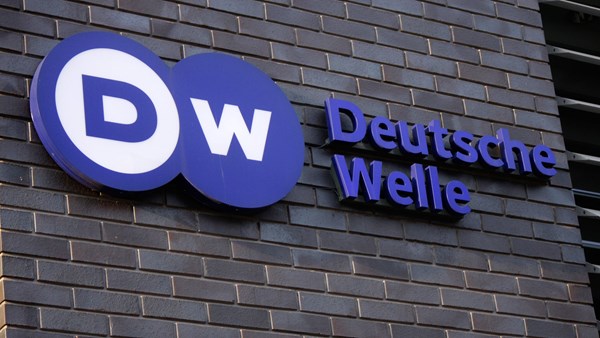Russia to strip Deutsche Welle’s accreditation due to ‘extremism’
The State Duma commission for interference in Russia’s affairs will ask the Foreign Ministry to consider stripping Deutsche Welle (DW) of its accreditation, said the head of the commission, Vasily Piskarev, as cited by the Russian State Duma website.
The commission believes that DW has broken a number of Russian laws by tweeting “calls to participate in unsanctioned protests”, and claims that the parliamentarians’ opinions are supported by a linguistic analysis. DW itself explained previously that it had been citing the protest organizers, and was not calling people to protest.
According to Piskarev, DW has broken the laws on protests, information and information technologies, as well as the law on the guarantees of voting rights, which prohibits foreign legal entities from carrying out pre-election agitation.
In addition, the head of the commission has seen signs of “justifying extremism” in DW’s articles about a blogger who was condemned after making a post about the children of law enforcement officials. According to Piskarev, DW effectively does not consider him a criminal. “There are signs of justifying extremism,” he claims.
On September 3, the blogger Vladislav Sinitsa was sentenced to five years in prison. He was charged with inciting hate after tweeting about what could happen to the children of the law enforcement officers involved in dispersing the protests on July 27 in Moscow. The blogger admitted to having written the tweet, but did not plead guilty.
Piskarev promised to send his investigation materials regarding DW to the Public Prosecution Service, the Federal Security Service, Interior Ministry and to the federal censorship agency, RosKomNadzor “to take the appropriate measures”, as well as to the Foreign Ministry “to decide regarding [DW’s] continued accreditation”.
The commission will also be sending materials to the Justice Ministry to have DW register as a media outlet “acting as a foreign agent”. “We believe that these proposals are justified and adequate [responses] to the measures taken by the West to strip the rights of Russian media abroad, such as Russia Today and Sputnik, and to protect national interests,” Piskarev remarked.
Piskarev also said that his commission has been investigating articles published by other news outlets, including Current Time, Meduza, the BBC Russian Service, MBK Media and Radio Liberty, although it is still too early to talk about any concrete decisions.
In mid July there were mass protests in favor of the registration of independent candidates in the Moscow City Duma election. Most of the rallies were not coordinated with the authorities and were accompanied by arrests. Many protesters were accused of involvement in “mass unrest” and of using violence against government officials.
The conflict around DW began at the end of August, when the Russian Foreign Ministry saw the news outlets’ publications as containing “a direct call to the inhabitants of Moscow to participate in unsanctioned mass protests” and considered this an attempt to interfere with Russia’s internal affairs.
Russia’s Federation Council also claimed that there had been foreign attempts to interfere with Russia’s elections, and the State Duma established a commission to investigate the incidents. DW representatives declined to participate in the commission. Johannes Hoffmann, Head of General Management at DW, said that the company did not see any legal opportunity for it to be involved, since it is accountable to the German supervisory organs. He added that the media’s journalism is based on the rules of objective coverage, which excludes interference in other countries’ internal affairs.
